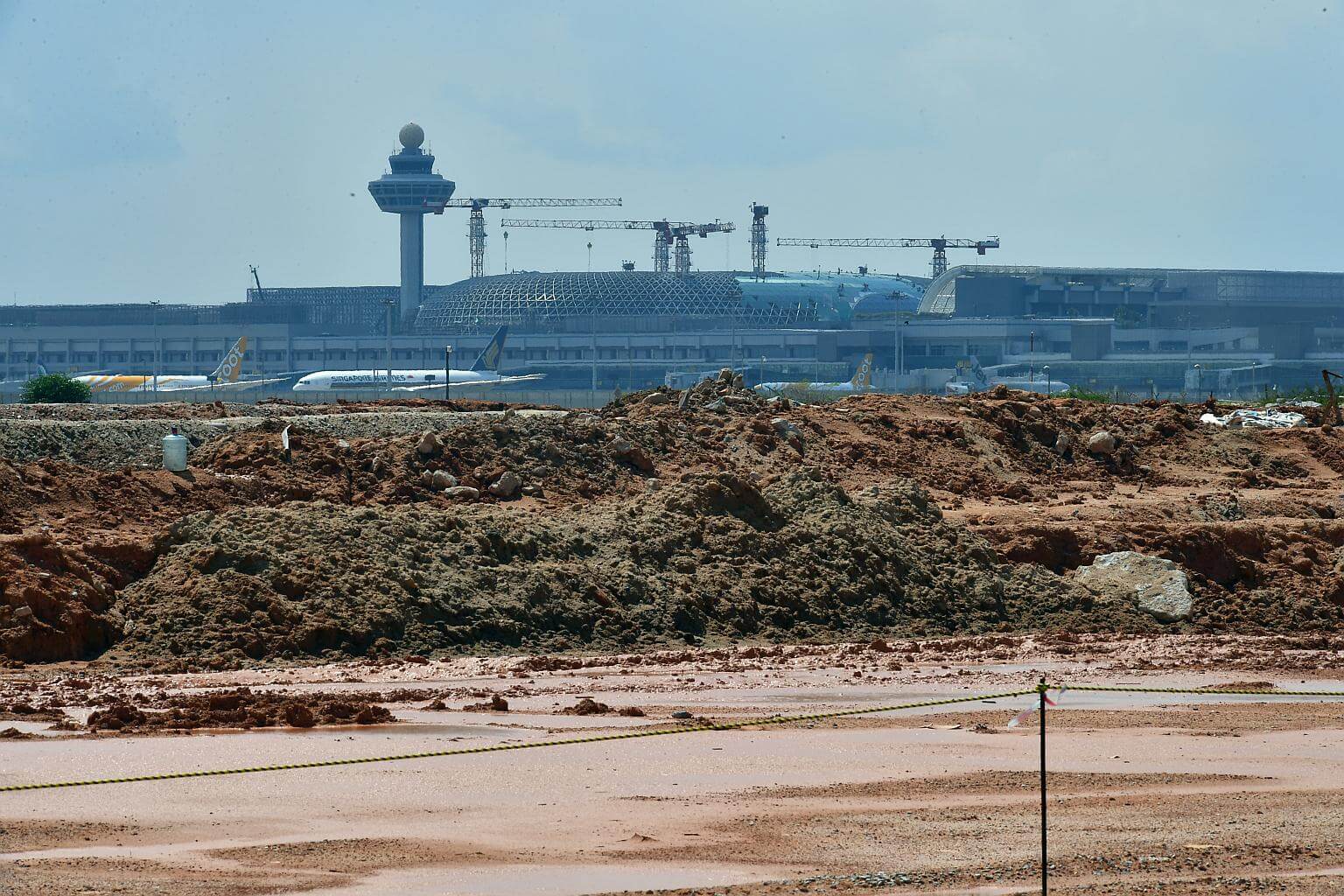Higher fees for airport users to fund Changi's expansion
New rates kick in on July 1; funds collected to help pay for growth, which includes T5
Sign up now: Get ST's newsletters delivered to your inbox

The extra fees to be collected from airlines and passengers from July are expected to yield more than $4 billion.
ST PHOTO: LIM YAOHUI
Karamjit Kaur
Follow topic:
Passengers and airlines using Changi Airport will have to partly fund its major expansion plans by paying higher fees from July 1.
The Government sees the massive investment in the airport as key to cementing Singapore's status as an aviation hub. However, industry players such as the International Air Transport Association (Iata) yesterday again opposed the model of getting users to pre-fund facilities before they utilise them.
From July 1, passengers who now pay $34 to fly out of Changi will have to fork out an extra $13.30.
Transit passengers will have to pay $3 more for each flight, with all hikes to be included in their fares.
Airlines will also have to pay more in aircraft parking and landing fees, the Ministry of Transport, Civil Aviation Authority of Singapore (CAAS) and Changi Airport Group (CAG) said yesterday.
The fees will rise each year until 2024, the authorities said. By April 1, 2024, the total departure fee for passengers departing from Changi Airport will climb to $62.30.
The total bill for the Changi East development, which includes Terminal 5, is expected to run into tens of billions, the Government said. Even the possibility of borrowing from the capital markets for such projects has been flagged. So far, the Government has committed more than $9 billion to the project, and CAG another $3.6 billion.
The extra fees to be collected from airlines and passengers from July are expected to yield more than $4 billion.
It is not clear if the fees will be cut when T5 opens around 2030.
The total fee is made up of a passenger service and security fee, an aviation levy charge and the new airport development levy.
The Sunday Times had reported in January that passenger fees will increase by between $10 and $15 to help pay for the works, which include a third runway.
T5 is expected to eventually handle up to 70 million passengers a year - more than Terminals 1, 2 and 3 combined. Changi Airport, which handled a record number of 62.2 million passengers last year, expects its current capacity of 85 million passengers per annum to be fully utilised by the late 2020s.
CAAS director-general Kevin Shum told journalists: "Changi East is our investment to secure Singapore's future... That is why we are doing all of these to ensure that Singapore remains the premier air hub for the region."
Transport Minister Khaw Boon Wan stressed in a Facebook post that the Government will be the main funder through grants, while CAAS and CAG will dip into their reserves and future surpluses to help fund T5.
"Having the Government and the airport community contribute towards the project is a fair way to finance the project, which will bring benefits to our people, businesses and the Singapore economy," Mr Khaw said.
Other airports have introduced user charges to support growth plans. In 2016, Hong Kong International Airport, which is building a third runway, started collecting between HK$70 (S$12) and HK$180 from each traveller. But Iata - the global voice of airlines - repeated its opposition to airlines pre-funding projects before using them.
Its regional vice-president (Asia Pacific) Conrad Clifford told The Straits Times: "While we recognise that the (Singapore) Government will be bearing the majority of the costs for the development of Changi East and Terminal 5, we are still disappointed with the decision to proceed with the pre-funding model despite the feedback provided by the industry."
Aviation analysts, however, do not expect the higher charges to significantly hurt Singapore's aviation hub status.

